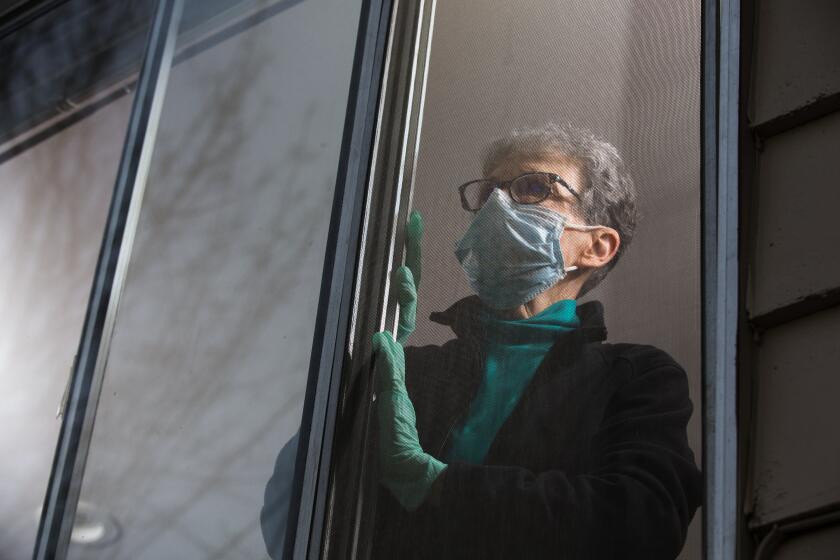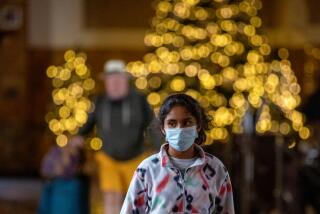To wear a mask or not? Experts answer coronavirus protection questions
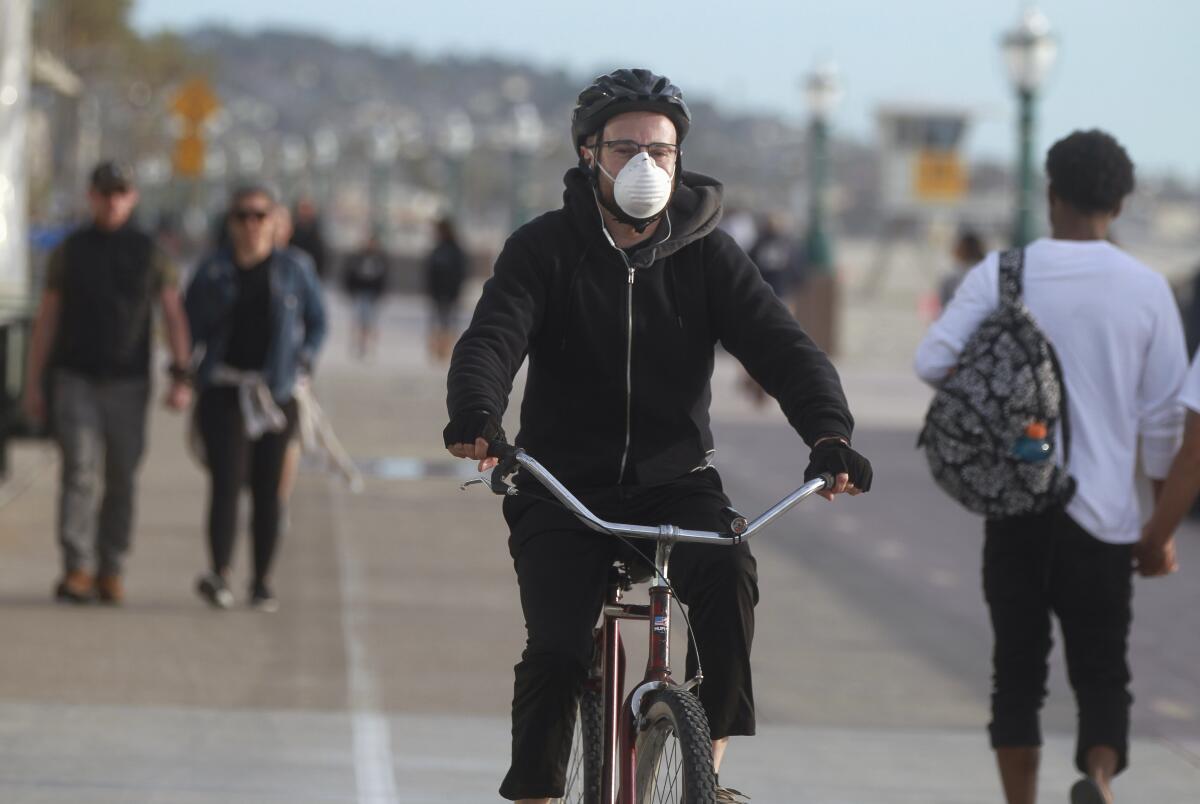
As the number of COVID-19 cases continues to increase, you may be wondering whether you should be wearing a mask when you leave your home to shield yourself from the new coronavirus.
The Centers for Disease Control and Prevention’s advice is unequivocal: Healthy people who do not work in the healthcare sector and are not taking care of an infected person at home do not need to wear masks.
“Facemasks may be in short supply and they should be saved for caregivers,” the government agency says.
Indeed, federal officials have warned that the Strategic National Stockpile contains just 1% of the top-notch N95 respirators that experts predict may be needed throughout the pandemic.
Many hospitals are already facing a shortage of these tight-fitting masks that filter out about 95% of small airborne particles. This has forced healthcare professionals to either reuse masks or switch to standard surgical masks, which do not block airborne particles as effectively.
Health experts say that the best way to protect yourself from becoming infected with the coronavirus is to practice social distancing, wash your hands frequently and avoid touching your face.
However, some say there are times when wearing a surgical mask or a homemade mask, or simply putting a bandanna around your face, might be a good idea.
Chunhuei Chi, director of the Center for Global Health at Oregon State University, noted that in Taiwan, people are required to wear surgical masks in places such as schools and restaurants and while riding public transportation. On an island of nearly 24 million people just 110 miles from mainland China, there have been only 215 cases of COVID-19 as of Tuesday and two deaths.
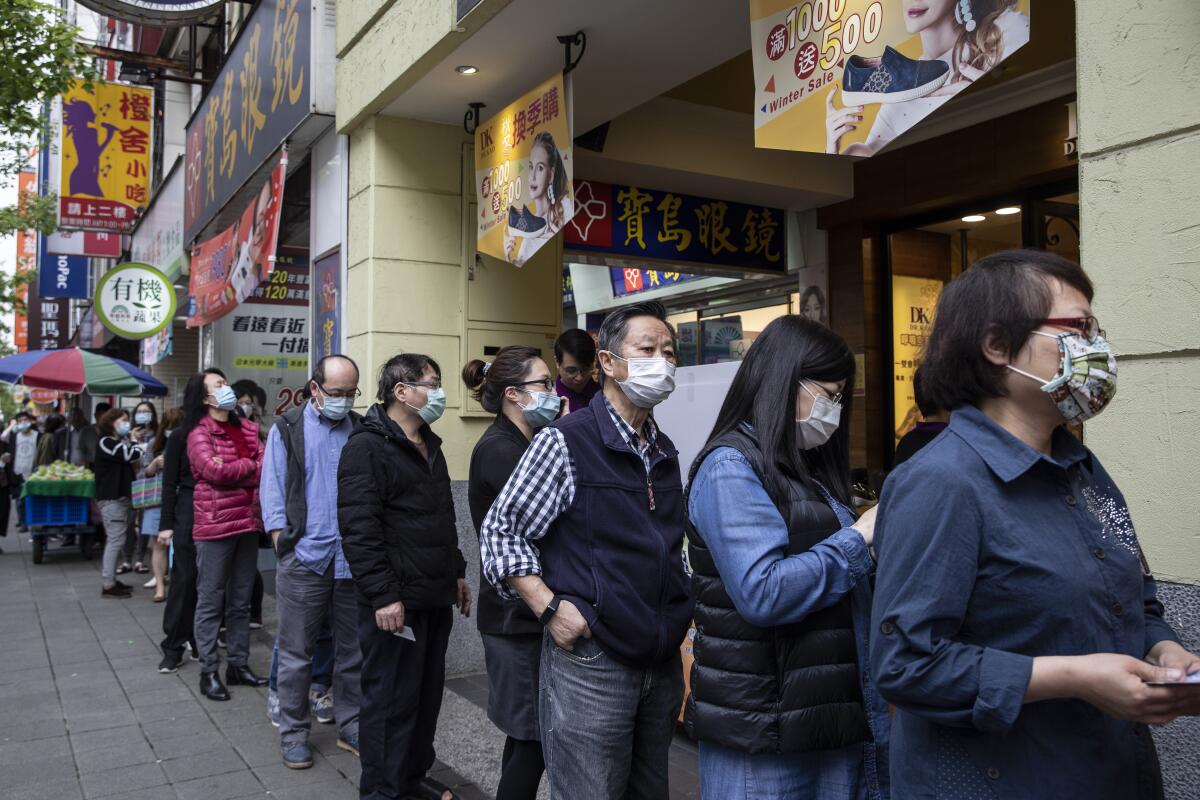
Although surgical and homemade masks don’t filter out particles as effectively as N95 masks, Chi said they can still be useful.
He and other health experts explained when it makes sense to wear a mask.
Should I be wearing a mask whenever I go outside?
It’s a controversial question, said Dr. Loren Miller, a physician and researcher at the Lundquist Institute in Torrance.
The CDC’s advice against them is motivated in part by a desire to make sure there are adequate supplies for those facing a higher risk of infection, such as healthcare workers.
He added that some authorities suggest that people who are likely to become very sick if they are infected — older people and those with underlying health conditions — might benefit from wearing a mask, if they use them correctly.
If you’ve been infected with the coronavirus, the chances that you will become critically ill depend on many factors.
Chi recommends wearing a mask only if you have to be in close contact with people, such as riding a crowded bus.
“If you are going out for a hike or walk and there are very few people around, you do not need a mask,” he said.
Which masks are best at protecting against the coronavirus?
N95 respirators provide the best defense against the coronavirus, Miller said. That’s because they filter out 95% of airborne particles and keep them from entering the wearer’s nose and mouth.
These masks are most effective when they are used correctly, he said. That means making sure that your hands are clean when you put it on and take it off, and that you resist the urge to fiddle with it even if it feels uncomfortable. The CDC says it is also important that the mask form a tight seal around your mouth and nose.
“In the general population, if you don’t use it right, it can be worse than not wearing a mask,” he said.
Chi added that the average person does not need a N95 mask to stay safe. “You only need a medical or surgical mask,” he said.
What about surgical masks?
Surgical masks cannot filter out virus particles, but they can protect the wearer from droplets coming out of a sick person’s mouth when they cough, sneeze or talk, Chi said.
Miller agreed that surgical masks do provide some benefit — for example, when worn by a sick person to prevent others around them from getting sick.
“Think of a surgeon in the operating room who needs to communicate with nurses and doctors,” he said. “These masks are designed to protect the patient from droplets coming out of the mouths of those nurses and doctors.”
Are homemade masks safe?
You may know people who are sewing masks for hospital workers, or themselves.
Chi said that people working closely with COVID-19 patients need to wear N95 masks to protect themselves from the virus. However, average clinicians not working so closely with people who have known infections could use surgical masks or even homemade masks.
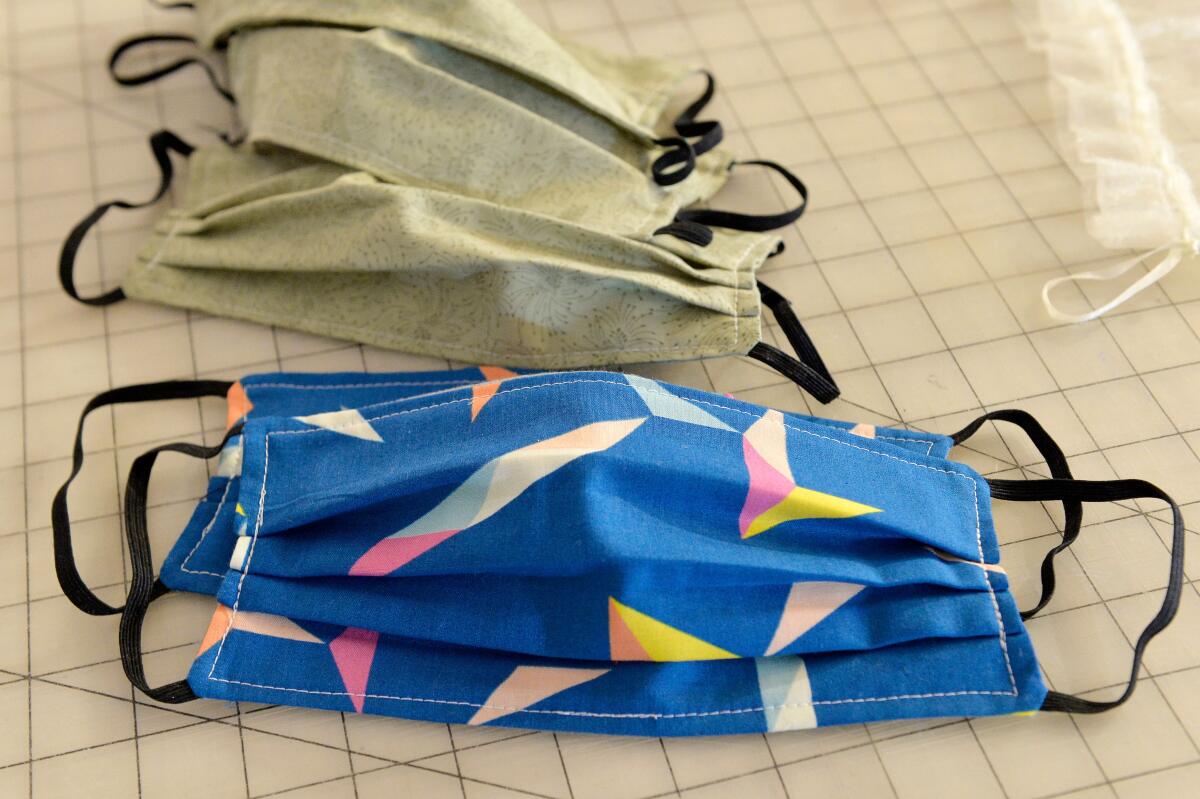
Polypropylene fabric is best to use if you can get your hands on it. It’s the material that is used in surgical masks, Chi said.
Homemade masks will not block virus particles if you spend a lot of time in close proximity to someone who is sick, but it will protect you from droplets containing the virus. That should be adequate for people who do not need to have close contact with those who are infected, he said.
Can masks be sterilized and reused?
N95 and surgical masks are designed for one-time use. However, with some hospitals and clinics contending with shortages, researchers are working to answer that question.
“We are in our infancy of understanding whether they could or should be reused,” Miller said.
Chi said that using ultraviolet light has been shown to be effective at sterilizing masks. Dry heat works as well.
“If you have a small toaster oven, you can set the dial for 158 degrees Fahrenheit for 30 minutes,” he said. He emphasized that dry heat, not moist heat, is essential.
